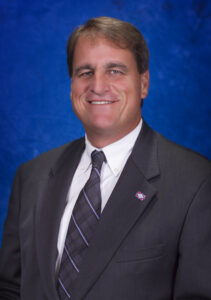By Jack Seiler, former mayor of Fort Lauderdale
This essay is adapted from Seiler’s remarks at an online Resilience Roundtable organized by the Broward County government this month.
I was pleased to be invited to today’s roundtable, not only in my capacity as a representative of the South Florida Business Council, the Broward Workshop, and our regional business community, but as a former elected official and long-time resident of Broward County.
These roles have informed my perspective and knowledge about climate change, resilience, economics and the importance of these issues within our community.
When I reflect on the last 10 years, many of which I spent as Mayor of Fort Lauderdale, I find great reward in seeing how far we have come.

Many Broward cities have taken many steps to address the threats of sea-level rise and climate change with significant investments in our stormwater management system and amendments to our sea wall requirements.
I know the Fort Lauderdale city staff continues to explore ways to improve the city’s position as environmental conditions change. I am confident that the level of community-wide engagement on these issues is unparalleled. It offers true testament to the value of partnership and collaboration.
I am especially pleased to recognize the prominent role that the private sector has played with these issues, with the chambers, the Alliance, the Workshop, trade organizations, and leadership forums, all bringing resilience to the top of their agendas.
We all recognize that climate change and resiliency are significant economic issues. Fundamentally, I think we all understand that the resilience of our region now requires individual investment coupled with large-scale community investment.
This requires support and shared ownership of the challenge. Significant action is requisite to our moving forward, with a focus on a specific road map that provides a clear sense of what needs to be achieved.
Along with that road map, we need a detailed time frame and measurable outcomes.
Last year, Keith Koenig, former Chair of the Broward Workshop, articulated a need for an actionable resilience plan, and the need to communicate the benefits of risk reduction in a way that resonates in the financial markets.
Again, as we debate the benefits of risk reduction, and as we evaluate risk reduction as an economic factor, we need to identify achievable goals and objectives. We need to establish the short-term and long-term deadlines to accomplish them. We need to be accountable to each other and to our neighbors.
I have the privilege to continue these efforts as one of the Broward Workshop’s point people on resilience and as Chair of the South Florida Business Council, a partnership among the Chamber of Commerce of the Palm Beaches, the Greater Fort Lauderdale Chamber of Commerce, and the Greater Miami Chamber of Commerce.
Our organizations have identified resilience and issues of water management as a primary focus for investing our resources and energies. We have advocated on behalf of regional efforts and have stepped up financially. Quite simply, the business community is not just “talking the talk”, but we are “walking the walk.”
For example, the business community has helped to set the foundation for coordinated investment in our region through a case study for the Southeast Florida, providing the counties with cost share support to enable the study to take place.
The study is now drawing positive interest from across the state and has provided a good foundation for additional work that needs to take place. This is the type of positive action we can help foster.
On behalf of the business community, we look forward to identifying specific goals and collectively working to bring them to fruition for the long-term benefit of our community.
Jack Seiler is the Chair of the South Florida Business Council, a Board Member of the Broward Workshop, and the former mayor of Fort Lauderdale from 2009 to 2018.
“The Invading Sea” is the opinion arm of the Florida Climate Reporting Network, a collaborative of news organizations across the state focusing on the threats posed by the warming climate.



